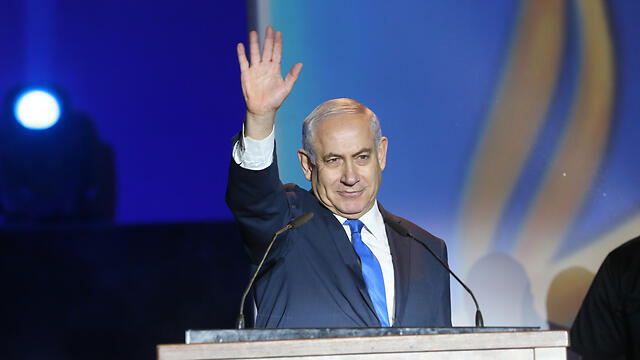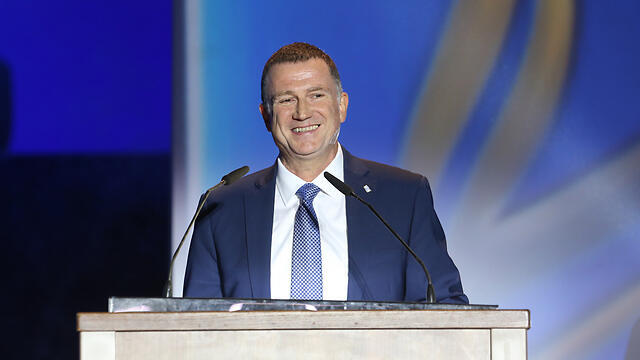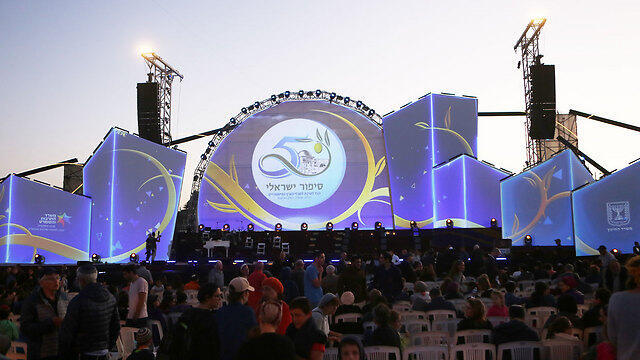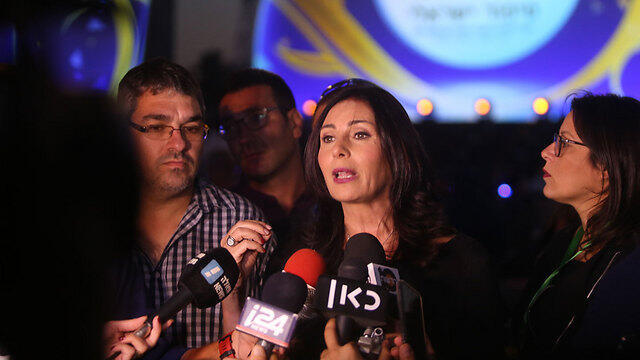Getting your Trinity Audio player ready...
Prime Minister Benjamin Netanyahu vowed Wednesday evening "not to uproot Jews or Arabs" at a ceremony in Gush Etzion to mark 50 years to the Jewish settlement in the West Bank, the Jordan Valley and the Golan Heights.
"The settlement enterprise is as important to me as it is important to you, my friends," Netanyahu said. "This is why I say, clearly and before anything else, there will be no more uprooting of communities in the land of Israel."
"This isn't just a question of the ties to the homeland," he continued. "But primarily it is not the way to achieve peace. We won't uproot—not Jews nor Arabs."
Netanyahu spoke of the 1967 Six-Day War, in which Israel captured the West Bank, east Jerusalem and the Golan Heights. "In the wonderful defensive war 50 years ago, we returned to Gush Etzion, we returned to Jerusalem's Old City, we returned to Judea and Samaria, the Jordan Valley and the Golan," he said.
"We returned home, to our ancestral land. This means we renewed the historical continuity of our people. This is where our identity, our beliefs, our history is made. We've renewed the historical continuity, and we'll make sure it will never be cut again," the prime minister vowed.
Knesset Speaker Yuli Edelstein spoke of the Jewish people's return to Israel. "It weren't dramatic declarations that brought us back to the land of Israel, to Jerusalem, and to Judea and Samaria. We returned here by virtue of the dream, and we were returned here by the strength of our faith," he said.
"Fifty years we've been realizing our dreams, years the like of which we haven't experienced in the annals of our people, years in which we gained experience and went on a very difficult journey. The uprooting of communities will not bring peace; (construction) freeze is not the path to an agreement," Edelstein asserted.
In a video screened during the ceremony, Education Minister Naftali Bennett called to apply Israeli sovereignty to the West Bank.
"There is no better time than now, right now," he said. "I don't take such a step lightly. To apply sovereignty, the right timing and courage are needed. Even if there will be opposition to that in the world, we will overcome it. The world understands what the entire Israeli public understands—the land of Israel will not be divided again."
Shortly before the ceremony began, its organizer Culture Minister Miri Regev criticized a decision by outgoing Supreme Court Chief Justice Miriam Naor ,which received backing by the High Court of Justice, not to send a representative of the judicial authority to the event.
The decision, Regev asserted, "bolsters the BDS Movement," which calls for boycott, divestment and sanctions against Israel.
"Attending this event are some ambassadors who didn't think it's controversial to listen to this beautiful Israeli story of settlement," she went on to say. "If this isn't returning home, then what does it mean to return home? The political argument has nothing to do with this event. There isn't a nation in the world that has ties to its land like the people of Israel do to this land."
Hundreds of residents of the illegal outpost Netiv Ha'avot and evacuees from the illegal outpost Migron protested at the Gush Etzion Junction not far from where the ceremony was held, demanding the prime minister and other ministers in attendance to fulfill their commitments to the settlers and legalize the status of the outposts.
In addition, dozens of activists from the left-wing NGO Peace Now protested ahead of the ceremony, calling out: "There's no reason to celebrate," "The settlements are destroying Israel," and "We demand two states."





